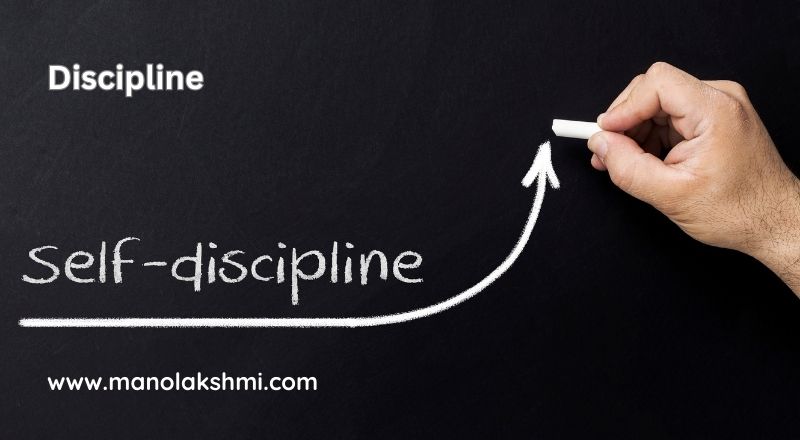The Discipline can refer to different things depending on the context. In general, it refers to a specific area of knowledge or field of study that has a specific set of rules, principles, and practices that define it.
In academic or professional settings, Discipline can refer to a specific academic department or domain, such as the discipline of psychology or engineering. Religious contexts define rules, principles, and practices for practitioners.
For example, “the discipline of psychology” refers to the study of human behavior, personality, cognition, and mental processes using scientific methods.
In some contexts, “the Discipline” may also refer to a specific set of codes or laws that regulate the behavior of a group or organization.
For instance, in the military, soldiers must adhere to the Discipline of the Uniform Code of Military Justice, which outlines the legal system that governs military personnel.
Similarly, in some religious traditions, “the Discipline” refers to a set of rules and practices that guide the spiritual and ethical conduct of followers. In the Christian tradition, for instance, “the Discipline” can refer to the book of rules and regulations followed by Methodists.
The term “Discipline” generally refers to a specific system of rules, principles, and practices that guide people’s behavior in a particular domain of knowledge, activity, or belief.
Self-Discipline:
Self-discipline refers to the capacity to manage and control actions, thoughts, and feelings to achieve a particular goal or desired outcome.

Self-discipline involves making a conscious effort to resist lures and distractions. And notions that may hinder progress toward the goal.
It also requires setting clear objectives, creating a plan of action, and following it always. Self-discipline can be applied to involve making choices. That is in alignment with our deals. Even if those choices may be hard or painful at the moment.
It requires getting oneself, resisting allure, and delaying gratification.
Self-discipline is critical for victory in any area of life. Whether it be personal, academic, or skilled. Without self-discipline, it is difficult to achieve goals, uphold healthy habits, or manage time effectively. maintain healthy habits, or manage time effectively.
Creating self-discipline requires strong willpower, persistence, and a willingness to push through discomfort and setbacks. It may involve setting new habits and breaking old ones. And creating structure and routine in one’s daily life.
Practicing Self
can lead to grown productivity, improved mind and bodily health, enhanced self-esteem, and greater overall delight in life.
Discipline is an integral part of office culture. It refers to the process of proving rules, methods, and expectations. That boosts professionalism, productivity, and care among employees.
A society with a strong penal policy reflects. A culture of professionalism and orderliness among its employees.
Discipline in an office setting is vital due to several reasons. First, it ensures that the work set remains productive and efficient.
When orderly conduct among employees. Discipline is crucial to keep a positive work habitat and ensure. That everyone clings to the same norms of behaviour and version.
Tips for training discipline in children:

Set clear rules and consequences: Establish clear rules and consequences that are appropriate for your child’s age and developmental stage. Consistency is key, so make sure you follow through with consequences when rules are broken.
Model good behaviour: Children learn by example, so make sure you model good behaviour yourself. If you expect your child to have a developmental level. Make sure your child understands the rules and consequences and that they are consistently enforced.
Consistency: Consistency is key when it comes to disciplining children. Stick to the rules and consequences you have established, and make sure they are enforced every time.
Use positive reinforcement: Catch your child doing something good and praise them for it. Positive reinforcement can be a powerful tool in helping to instil good behaviour.
Be a good role model: children learn by example, so make sure you are modelling the behaviour you want your child to exhibit.
Use natural consequences:
If your child does something wrong, let them experience the natural consequences of their actions. For example, if they forget their homework at school, they may have to deal with the consequences of a lower grade.
Use time-outs: If your child is misbehaving, use a time-out as a way for them to calm down and reflect on their behaviour.
Use logical consequences: When a child breaks a rule, make sure the consequence fits the behavior. For example, if they break a toy, they may need to earn money to replace it.
Stay calm: discipline should never be done in anger. Take a moment to calm down and approach the situation with a clear head.
Remember, discipline is about teaching your child to make responsible choices and to understand the consequences of their actions. By setting clear rules, being consistent, and using positive reinforcement, you can help your child learn the skills they need to become responsible, self-disciplined adults.
Effective Office Discipline:
Clear expectations: Employees should know what is expected of them in terms of their work performance and behaviour in the workplace. It is the employer’s responsibility to clearly define these expectations by providing a job description, a code of conduct, and other relevant guidelines.

Consistency: Discipline should be consistent across the workplace. The same rules and standards should apply to all employees, regardless of their position, tenure, or personal circumstances.
Fairness: Discipline should be fair and proportionate to the severity of the offence committed. Employers should ensure that employees are given due process and the opportunity to state their case before any disciplinary action is taken.
Positive reinforcement: Positive reinforcement can be a powerful tool to encourage good behaviour and maintain high levels of productivity. Employers should reward employees who meet or exceed performance targets or demonstrate good behaviour in the workplace.
Flexibility: Discipline should be flexible to accommodate individual circumstances. Employers should consider the context and factors surrounding a particular incident and tailor the disciplinary approach accordingly.
Effective office discipline is crucial for a positive work environment and optimal performance. Who takes a proactive approach to discipline? Can foster a culture of responsibility and accountability, leading to a more productive and harmonious workplace.
Visit and support our page: Touch Screen mobile Disadvantages
